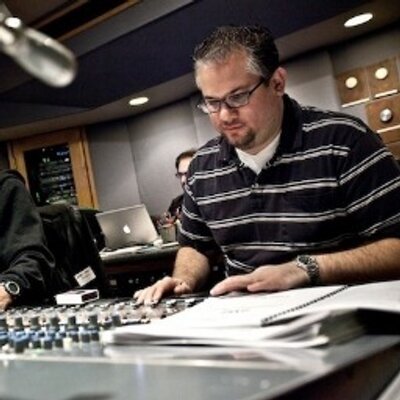As a PC gamer I’ve spent plenty of time listening to Chris Tilton’s music but missed out on his earlier work because the games were released on the PS2 and Xbox. Black (2006) had a significant following but as a PC gamer I never played it. As an action driven FPS it was no surprise to see Michael Giacchino on the job, working with Tilton on the themes. Played by Hollywood Studio Symphony, a 72 piece orchestra, the score is a fully-developed suite of music that could be used in a Hollywood action movie even today. Madhouse Mayhem and Sniper Alley are great examples of why. The Main Theme (Reprise) stands out too, and listening to this in 2016 you can here where Giacchino is headed next.
Mercenaries 2: World in Flames (2008) was also a game I had nothing to do with. But it’s soundtrack shows Tilton’s capacity to compose more complex orchestral tracks suited for TV and movies, skills he would later bring to bear on the series Fringe. Every western composer has fun when they get to add Latino elements into their music, and the game being set in Venezuela that’s exactly what happens. Large percussive hits and action strings characterise this OST.
Fracture, another console-only release, I haven’t heard at all. Unless I’m missing something, the score doesn’t appear on Apple Music, nor has anyone put it on YouTube(?!).
I was along for the whole ride that was the release of the new Sim City in 2013. You’ll probably already know that the launch didn’t go as planned and the game required some pretty major patching in the first few months. As opposed to the whiney reviews and commentary that make up the bulk of video game journalism, I quite liked the game. I played a lot of it and there’s a good chance I’ll play it again someday. One of the major reasons why it stuck with me was the soundtrack. How exactly do you compose a score for a city building game? Detaching himself from the sound of previous titles, Chris Tilton ended up creating a gem. As modern, synth driven ambience, it’s a soundtrack that can be listened to on it’s own. It’s complex enough to be interesting but unobtrusive enough that it can be left on in the background, which is exactly what you want when you’re playing the game for hours. Population – 1 is where it all starts. The mix of sweeping pads combined with strings, piano and woodwind. I suspect there’s a chance of overanalysing these tracks given he apparently didn’t have much to work from when putting it all together. That said, great music can come from situations like these. When your suburbs start to grow, The Long Construction kicks in. It sounds like victory in suburbia. Town and Out could easily be the intro theme to lighthearted TV show and makes you feel like you’re building Middle America. If you haven’t budgeted well and you hear the first soft strains of Red City Lights start to play, you can feel nothing but concern for your Simizens. Distaster! is even more concerning for obvious reasons.
The Cities of Tomorrow expansion takes the same tracks to the future, swapping out the real instrument sound for more synths and pads. There is definitely some Vangelis inspiration here. The sound palette he uses here bleeds in directly to Assassin’s Creed Unity.
You can’t get much bigger than Assassin’s Creed and with the boots of Jesper Kyd and Lorne Balfe to fill, it would have been an intimidating task. Tilton meets it and adds another great score to the franchise’s growing list. He takes the cue from the previous composers who combine traditional instruments with futuristic synth – a very clear aural representation of the key idea behind AC. Austin Wintory abandons this approach quite intentionally with his effort on the following game. Unity is a great main title that follows the current Hollywood action introduction formula (Sim City pads clearly audible from 2:20min). Like its predecessors, the score includes tracks designed for tension, intense action and introspection. Tilton uses piano to underpin the more thoughtful moments in On Father’s Watch, for example. Running strings, arpeggio (Sim City) synths and rolling percussion are used in the faster-paced tracks like Chase by Chase Basis, much in the same way Lorne Balfe put together the cues in AC3. Sans any inns, towns or tavern cues, The Bottle of Solitude is the quietest track of the whole release. Origins of a Revolution brings all the elements together and completes the disk.
Chris Tilton isn’t the most prolific composer out there but what he produces is quality. If you haven’t come across his work before, make sure to get acquainted now!

